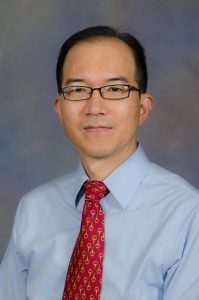The U.S. National Science Foundation (NSF) recently announced 34 semifinalists for the first-ever NSF Regional Innovation Engines (NSF Engines) competition, spanning nearly all key technology areas and societal and economic challenges highlighted in the “CHIPS and Science Act.”
One of the semifinalist teams is led by BRIDG, a Florida-based, not-for-profit, public-private partnership focused on developing and commercializing advanced technologies. Also on the project is a UF team, led by Dr. Yong-Kyu Yoon, along with Dr. Navid Asadi, Dr. Christophe Bobda, Dr. Gloria Kim, Dr. Farimah Farahmandi, Dr. Baibhab Chatterjee, Dr. Philip Feng, Dr. Mark Tehranipoor, Dr. Hyo Kang, and Dr. Brent Gila. The project, “NeoCity Semiconductor Technology Accelerator,” is the only project in the semifinals from the microelectronics and semiconductors category, and was chosen from amongst the initial crop of 188 concept outlines.
Said Dr. Yoon,
“I envision advanced packaging, the theme of our engine project, rising from Central Florida but making a profound impact on the entire state of Florida, the Southeast, and the whole nation. With the unwavering dedication to innovation, the team is set to become a global leader in the field.”
From the NSF website:
The NSF Engines program is anticipated to be transformational for the nation, ensuring the U.S. remains globally competitive in key technology areas for decades to come. Each NSF Engine could receive up to $160 million over 10 years; actual amounts will be subject to a given NSF Engine’s status and overall progress, as assessed annually. NSF anticipates announcing the final list of NSF Engines awards this fall, with each awardee initially receiving about $15 million for the first two years.
In order to get to the semifinal stage, the project passed an initial merit review of proposal and has already had its virtual site visit. Those selected to move to the final round in July will be interviewed in person to assess risks and committed resources, as well as the team’s ability to adapt to changing circumstances.
After the successful virtual site visit, the team is feeling positive about their chances of being chosen as one of the final five teams.


